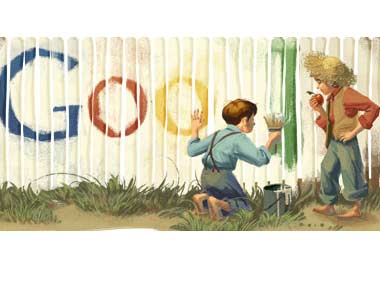New Delhi: In the latest Delhi High Court hearing on the removal of objectionable content on popular websites like Google and Facebook, H Hariharan, counsel for complainant Vinay Rai, argued that Google India cannot get exemption under section 79 of the information technology (IT)act as demanded by the company in the last court hearing. [caption id=“attachment_201770” align=“alignleft” width=“380” caption=“The prosecution argued that Google modified content and was therefore not a mere ‘host’”]  [/caption] In his argument, which lasted for around 60 minutes, Hariharan read from the IT Act to prove why the company was wrong in saying it could not be held responsible for objectionable content on its site as it was merely a repository of content and it does not produce any original material. Section 79, argued the lawyer, applies when the intermediary only hosts the content and does not modify it. “In the case of Google, the company hosts sponsored link with the content to generate business. This is modifying the content and therefore the exemption does not apply in this case,” said he. Reading from Google’s terms of services, he said that the company can, at anytime, stop any of the services without the prior knowledge of the user. Therefore, the argument that Google was not aware of the content being hosted on the search engine and its subsidiary companies, said the lawyer, did not hold ground. Hariharan emphasised on the point that contrary to the Google’s plea that it was not practical to control the flow of information on internet, the company has been actually removing the content on case by case basis. The counsel produced a chunk of Google Transparency Report. The report is an account of requests received by Google to remove content. “It clearly shows that what the company chose and did not chose to do about such requests. How can it say that it cannot remove content?” argued Hariharan. He added that at as per Rule 4 of the IT Act, if the company gets to know by itself or by any source that it is hosting objectionable content, it should remove the same. The counsel that in Google’s case, the company knew about the existence of such content from various sources, but failed to take any action on the same. “This is illegal ommission on the part of Google,” said he. The lawyer also said that Google did not follow ‘due diligence’ in hosting the content as mandated by the law. Talking about the ‘objectionable content’ on the websites named in the petition ‘Facebook versus Vinay Rai’, the counsel made a case for widening the definition of due diligence in the case of Internet companies. “The damage which could have been done by exposing people to this content is somethins that cannot be quantified in terms of damage. Hence, there should be higher standards (of due diligence) in such cases,” he said. In the next hearing on 14 February, Google and Yahoo will present their side of the argument. Vinay Rai, editor of a fortnightly magazine, had filed a petition in a Delhi court seeking removal of objectionable content from internet in December 2011. The court then issued summons to 21 websites. The websites including Google, Facebook and Yahoo challenged the ruling in High Court.
The prosecution has claimed that Google cannot get exemption on the grounds that it only hosted and did not modify content.
Advertisement
End of Article


)

)
)
)
)
)
)
)
)



